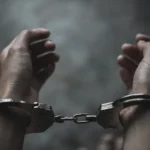The Director General, Nigerian Army Resource Centre (NARC), Maj.-Gen. Garba Wahab, says there is need to have journalists embedded by the military in its operations planning and execution.
Wahab said this at a one-day seminar organised by the Defence Correspondents’ Association of Nigerian, on Tuesday in Abuja.
The theme of the seminar is, “Civil Military Relations: Non-kinetic efforts of the Nigerian Military in Security Management, Challenges and Prospects”.
He said embedding journalists in the planning and conduct of operations would help greatly in checking negative reports on the activities of security agencies.
Wahab said the seminar was a platform for the military to engrave its friendship with the media and bridge the existing divide between them.
He challenged media practitioners to be patriotic in the performance of their duties and avoid reports that would be detrimental to national interest and security.
Wahab expressed concern that some media organisations opposed to government could not draw a line between politics and national security.
“Today in Nigeria, open your TV, look at some channels and you can easily decipher that this particular channel is against the government.
“And so they go to any length in saying anything that is detrimental to national security and national interest.
“I am not saying cover up what is wrong, but there are ways by which these are done elsewhere.
“The military guys there and the other security agencies are there to save lives, yours is to report and tell it the way it is but there are ethics on both sides.”
Wahab said the media must also find a way of being ethical, adding that the government and the armed forces should ensure that the interests of the media were taken into consideration during operations.
He said that terrorism and insurgency depended on reportage, adding that the media must be mindful of what they report about terrorists’ or kidnappers’ activities.
The National Coordinator, National Counter -Terrorism Centre, retired Rear Adm. Yaminu Musa, represented by Commodore BM Sule, said the nation’s military has witnessed expanding roles in addressing non-conventional security threats such as terrorism, insurgency and communal conflicts.
Musa said that attention was previously given to only the kinetic means in managing security, without looking at the non-kinetic methods, which involves non use of military force.
He said building public trust in the military was crucial to the success of military operations and enhancing national security.
According to him, the media plays significant role in shaping this relationship as it serves as a bridge between the military and the public.
“The press has been a dependable partner in projecting the military in positive light by providing accurate and timely information to the public.
“By reporting on military operations, security challenges and government initiatives, the press helps keeps citizens informed, fosters transparency and makes public officials accountable.
“This information is essential for a well informed society and can influence public perceptions, policies and decisions related to security and defence,” he said.
The Director, Defence Media Operations, Maj.-Gen. Edward Baba, said the military would do its best in maintaining and sustaining cordial relationship in the interest of the nation.
On his part, the Acting Director, Defence Information, Brig -Gen. Tukur Gusau, urged the media to be circumspect in their reportage of security issues without jeopardising ongoing operations.
Gusau also urged the media to understand the nature of information management in the military while seeking information or clarification over issues.
He expressed the readiness of the military to work with the media as partners in progress.

 Join Daily Trust WhatsApp Community For Quick Access To News and Happenings Around You.
Join Daily Trust WhatsApp Community For Quick Access To News and Happenings Around You.


